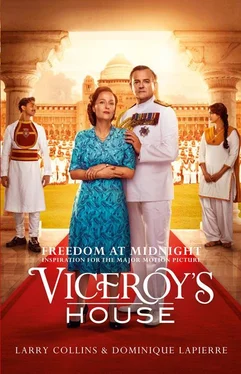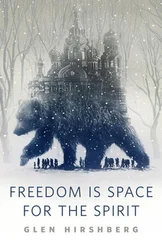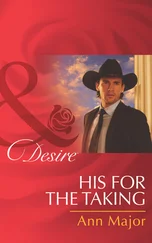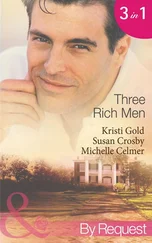FREEDOM AT MIDNIGHT
INSPIRATION FOR THE MAJOR MOTION PICTURE
VICEROY’S HOUSE
Larry Collins and Dominique Lapierre

William Collins
An imprint of HarperCollins Publishers 1 London Bridge Street London SE1 9GF
WilliamCollinsBooks.com
This ebook first published in Great Britain by William Collins in 2017
Copyright © Larry Collins and Pressinter S.A. 1975, 1997
The Authors assert the moral right to
be identified as the author of this work
A catalogue record for this book is
available from the British Library
Cover artwork: Pathé Productions Limited
All rights reserved under International and Pan-American Copyright Conventions. By payment of the required fees, you have been granted the non-exclusive, non-transferable right to access and read the text of this ebook on-screen. No part of this text may be reproduced, transmitted, down-loaded, decompiled, reverse engineered, or stored in or introduced into any information storage and retrieval system, in any form or by any means, whether electronic or mechanical, now known or hereinafter invented, without the express written permission of HarperCollins ebooks
The images were not available for the electronic edition
HarperCollins Publishers has made every reasonable effort to ensure that any picture content and written content in this ebook has been included or removed in accordance with the contractual and technological constraints in operation at the time of publication
Source ISBN: 9780008247782
Ebook Edition © October 2016 ISBN: 9780007381296
Version: 2017-03-06
‘The responsibility for governing India has been placed by the inscrutable design of providence upon the shoulders of the British race.’
RUDYARD KIPLING
‘The loss of India would be final and fatal to us. It could not fail to be part of a process that would reduce us to the scale of a minor power.’
WINSTON CHURCHILL
to the House of Commons,
February 1931
‘Long years ago we made a tryst with destiny, and now the time comes when we shall redeem our pledge … At the stroke of the midnight hour, while the world sleeps, India will awake to life and freedom. A moment comes, which comes but rarely in history, when we step out from the old to the new, when an age ends, and when the soul of a nation, long suppressed, finds utterance …’
JAWAHARLAL NEHRU
to the Indian Constituent Assembly,
New Delhi, August 14, 1947
COVER
TITLE PAGE
COPYRIGHT
EPIGRAPH
LIST OF MAPS
PREFACE
PROLOGUE
1 ‘A Race Destined to Govern and Subdue’
2 ‘Walk Alone, Walk Alone’
3 ‘Leave India to God’
4 A Last Tattoo for the Dying Raj
5 An Old Man and his Shattered Dream
6 A Precious Little Place
7 Palaces and Tigers, Elephants and Jewels
8 A Day Cursed by the Stars
9 The Most Complex Divorce in History
10 ‘We Will Always Remain Brothers’
11 While the World Slept
12 ‘Oh Lovely Dawn of Freedom’
13 ‘Our People Have Gone Mad’
14 The Greatest Migration in History
15 ‘Kashmir – only Kashmir!’
16 Two Brahmins from Poona
17 ‘Let Gandhi Die!’
18 The Vengeance of Madanlal Pahwa
19 ‘We Must Get Gandhi Before the Police Get Us’
20 The Second Crucifixion
EPILOGUE
WHAT THEY BECAME
BIBLIOGRAPHY
INDEX
ACKNOWLEDGEMENTS
ABOUT THE AUTHORS
NOTES
ALSO BY THE AUTHORS
ABOUT THE PUBLISHER
India: before the transfer of power, and on the day of Partition
The Punjab
Bengal
Kashmir
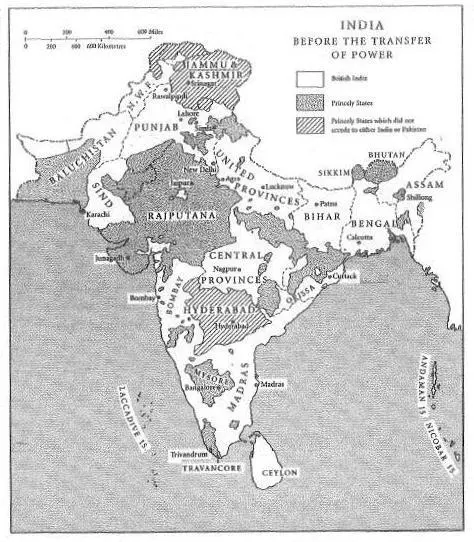
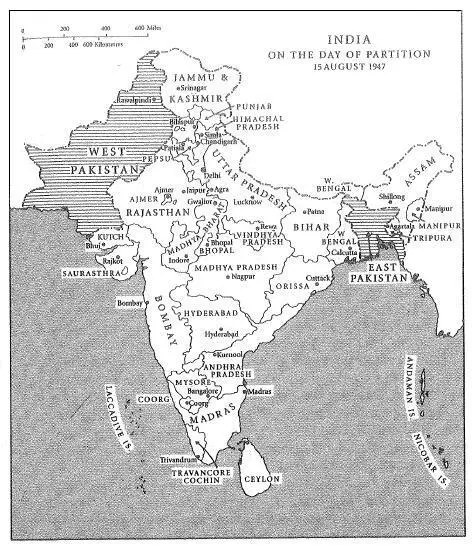
In each passing century there are a few defining moments of which it can truly be said: ‘Here history was made’ or ‘Here mankind’s passage through the ages took a new direction or turned towards a new horizon.’ Such a moment occurred on the morning of 28 June 1914 when Gavrilo Princip stepped from the crowds in Sarajevo to assassinate Archduke Franz Ferdinand and set Europe on the road to the slaughterhouse of the First World War, or again on that winter day in 1942 in Chicago when Enrico Fermi ushered in the Atomic Age with the first nuclear chain reaction.
Of equal importance in the history of our fading century was yet another moment, this one just seconds after the midnight of 14–15 August 1947 when the Union Jack, emblazoned with the Star of India, began its final journey down the flagstaff of Viceroy’s House, New Delhi. For the last retreat of that proud banner proclaimed far more than just the end of the British Raj and the independence of 400 million people, at the time one-fifth of the population of the globe. It also heralded the approaching end of the Age of Imperialism, of those four and a half centuries of history during which the white, Christian heirs of Europe held most of the planet in their thrall. A new world was coming into being that night, the world that will go with us across the threshold of the next millennium, a world of awakening continents and peoples, of new and often conflicting dreams and aspirations.
High drama it was, and what a cast of characters stood centre stage that night! Admiral of the Fleet Lord Louis Mountbatten, Earl of Burma, the last Viceroy, sent out to Delhi to yield up the finest creation of the British Empire, proclaimed in the name of his great-grandmother Queen Victoria. Jawaharlal Nehru, a man of impeccable taste, breeding and fastidious intelligence, destined to become the first leader of the tumultuous Third World. Mohammed Ali Jinnah, cool, austere, polite to a fault, but determined to force on the departing British the formation of a new Islamic nation – while savouring nightly the forbidden pleasures of a whisky and soda.
And, towering above the others, Mohandas Karamchand ‘Mahatma’ (Great Soul) Gandhi, the frail prophet of nonviolence who had hastened the end of the empire on which the sun was never to set by the simple expedient of turning the other cheek. In an age when television did not exist, radios were rare and most of his countrymen were illiterate, he proved a master of communications because he had a genius for the simple gesture that spoke to his countrymen’s souls. Surely, as historians and editors begin to choose their candidates for Man or Woman of the Century, his will be a name high on their lists.
Looming as the backdrop to that dramatic moment was the contrast between two Indias. First, the India of the imperial legend dying that night, of Bengal Lancers and silk-robed maharajas, tiger hunts and green polo maidans, royal elephants caparisoned in gold, haughty memsahibs and bright young officers of the Indian Civil Service donning their dinner jackets to dine in solitary splendour in tents in the midst of a steaming jungle. Then there was the new India coming into formal existence with the approaching dawn, a nation often beset by famine and frustration, struggling towards modernity and industrial power through the burden of her multiplicity of peoples, cultures, tongues and religions.
Читать дальше
